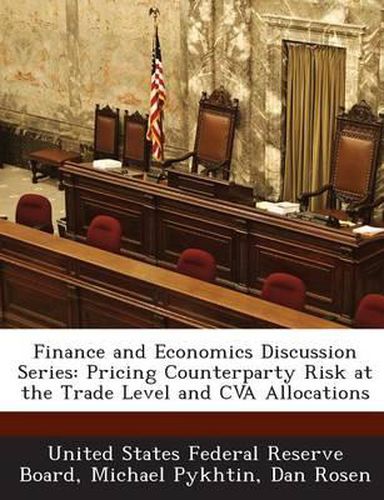Readings Newsletter
Become a Readings Member to make your shopping experience even easier.
Sign in or sign up for free!
You’re not far away from qualifying for FREE standard shipping within Australia
You’ve qualified for FREE standard shipping within Australia
The cart is loading…






We address the problem of allocating the counterparty-level credit valuation adjustment (CVA) to the individual trades composing the portfolio. We show that this problem can be reduced to calculating contributions of the trades to the counterparty-level expected exposure (EE) conditional on the counterparty’s default. We propose a methodology for calculating conditional EE contributions for both collateralized and non-collateralized counterparties. Calculation of EE contributions can be easily incorporated into exposure simulation processes that already exist in a financial institution. We also derive closed-form expressions for EE contributions under the assumption that trade values are normally distributed. Analytical results are obtained for the case when the trade values and the counterparty’s credit quality are independent as well as when there is a dependence between them (wrong-way risk).
$9.00 standard shipping within Australia
FREE standard shipping within Australia for orders over $100.00
Express & International shipping calculated at checkout
We address the problem of allocating the counterparty-level credit valuation adjustment (CVA) to the individual trades composing the portfolio. We show that this problem can be reduced to calculating contributions of the trades to the counterparty-level expected exposure (EE) conditional on the counterparty’s default. We propose a methodology for calculating conditional EE contributions for both collateralized and non-collateralized counterparties. Calculation of EE contributions can be easily incorporated into exposure simulation processes that already exist in a financial institution. We also derive closed-form expressions for EE contributions under the assumption that trade values are normally distributed. Analytical results are obtained for the case when the trade values and the counterparty’s credit quality are independent as well as when there is a dependence between them (wrong-way risk).